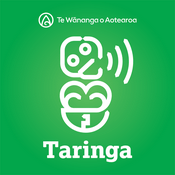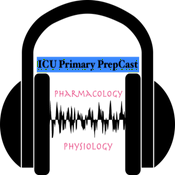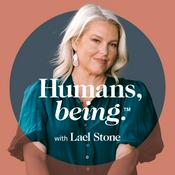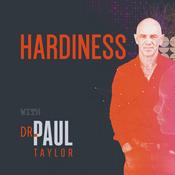55 episodes
- Vitreoretinal problems can arise as a natural part of ageing but in some patients, something more sinister could be at play. What are the signs of vitreomacular interface disorder pathogenesis that optometrists should be picking up on in practice?
In this episode, Michelle Hanratty is in conversation with Mr Kam Balaggan, a consultant in cataract and vitreoretinal surgery at Wolverhampton Eye Infirmary. Kam describes how to identify the vitreomacular conditions that might be encountered in everyday practice — from adhesion to epiretinal membranes and macular holes. He goes on to explain when and how urgently cases should be referred.
Michelle also asks Kam some of the questions viewers left during his recent Docet webinar, which registered optometrists can catch-up on here.
GOC-registered optometrists practising in England, Wales or Northern Ireland can gain 1 CPD point by listening to this podcast and completing the exercise on our website. This episode covers the GOC domain of Professionalism and Clinical Practice. Docet - dedicated to providing quality optometric education and professional development. - It’s thought that over half of the world’s population experience a headache disorder, and almost all of us have experienced the symptoms at some point in our lives. Headaches can be caused by many different factors — both visual and non-visual — and their severity can vary massively. When optometrists are examining patients, it’s not always clear how concerned to be or what to do next. After all, headaches could be a sign of an underlying health problem, from hypertension to brain tumours.
In this episode, Michelle Hanratty is joined by Hilary Hodgson and Dr Nav Chana, who together advised a new six-part course about headaches available on the Docet website. Hilary, an optometrist, begins by explaining what to look out for in eye examinations. Dr Chana, a GP, goes on to discuss when to refer on patients and how primary care practitioners can work together to understand the causes of headaches in a timely manner.
You can enrol onto Docet’s headaches CPD course here.
GOC-registered optometrists practising in England, Wales or Northern Ireland can gain 1 CPD point by listening to this podcast and completing the exercise on our website. This episode covers the GOC domain of Clinical Practice and Communication. Docet - dedicated to providing quality optometric education and professional development. - Skin conditions are very common in the UK; for example, up to 30% of children and 10% of adults suffer from eczema. Dermatological problems can cause great discomfort or they could be the sign of a more serious underlying health condition. If the eye area is affected by a skin condition, optometrists are in a good position to help patients early-on, especially as it can sometimes be difficult to access a GP or a dermatologist in a timely fashion.
In this episode, Bryan Murphy, a Consultant Dermatologist at Cathedral Health in Belfast, tells Michelle Hanratty why it’s essential for optometrists to understand periocular conditions, from allergies and inflammation to skin lesions. Bryan also provides practical advice for optometrists on history-taking and referrals when patients present with skin problems.
Don’t forget that if you have a topic in mind that you’d like us to cover, or if you’ve got an interesting case study you’d like to share, send Docet a message on LinkedIn.
GOC-registered optometrists practising in England, Wales or Northern Ireland can gain 1 CPD point by listening to this podcast and completing the exercise on our website. This episode covers the GOC domain of Clinical Practice. Docet - dedicated to providing quality optometric education and professional development. - As we heard in episode 51, around a third of people affected by brain tumours report a problem with their vision. That’s why optometrists are uniquely placed to catch suspicious signs early and refer patients into hospital for further checks.
In the second of two episodes on brain tumours and neuro-ophthalmology, Michelle Hanratty speaks to Lorcan Butler, an optometrist and the Optical Engagement Manager at The Brain Tumour Charity. Lorcan explains the clinical signs to look out for, when to be suspicious and what best practice is for referring patients on.
We also hear stories from brain tumour patient, Connor McCann (episode 51), idiopathic intracranial hypertension patient, Shannen Brodrick (episode 9); and communication tips from ophthalmologist, Dr Naz Raoof (episode 2).
Don’t forget that if you have a topic in mind that you’d like us to cover, or if you’ve got an interesting case study you’d like to share, send Docet a message on LinkedIn.
GOC-registered optometrists practising in England, Wales or Northern Ireland can gain 1 CPD point by listening to this podcast and completing the exercise on our website. This episode covers the GOC domain of Clinical Practice and Communication. Docet - dedicated to providing quality optometric education and professional development. - A brain tumour is an abnormal growth or mass of cells in or around the brain. They can be life-threatening and their incidence is increasing in the UK, as the population gets older. Around a third of people affected by a brain tumour report a problem with their vision. That’s why optometrists are uniquely placed to catch suspicious signs early and refer patients into hospital for further checks. You may well end up saving a life.
In the first of two episodes on brain tumours and neuro-ophthalmology, Michelle Hanratty speaks to Connor McCann, an optometrist in Bristol who was incidentally diagnosed with a brain tumour in 2022. Connor explains what it’s like to live with — and treat — brain tumours. He also shares insights on how to communicate with and care for patients with more compassion and empathy.
Read more about Connor’s story on his blog, called “Eye Am Connor”.
Don’t forget that if you have a topic in mind that you’d like us to cover, or if you’ve got an interesting case study you’d like to share, send Docet a message on LinkedIn.
GOC-registered optometrists practising in England, Wales or Northern Ireland can gain 1 CPD point by listening to this podcast and completing the exercise on our website. This episode covers the GOC domain of Communication and Professionalism. Docet - dedicated to providing quality optometric education and professional development.
More Education podcasts
Trending Education podcasts
About Sound Optometry
Sound Optometry is the podcast from Docet that provides high quality continuing professional development (CPD) for fully-qualified UK-GOC-registered optometrists practising in England, Wales and Northern Ireland. Each month, we’ll be exploring the topics that matter most to us optometrists with case studies and in-depth conversations.
You can gain 1 CPD point by listening to this podcast and completing the exercise on docet.info.
Podcast websiteListen to Sound Optometry, Everyday Māori and many other podcasts from around the world with the radio.net app
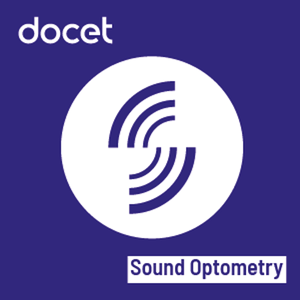
Get the free radio.net app
- Stations and podcasts to bookmark
- Stream via Wi-Fi or Bluetooth
- Supports Carplay & Android Auto
- Many other app features
Get the free radio.net app
- Stations and podcasts to bookmark
- Stream via Wi-Fi or Bluetooth
- Supports Carplay & Android Auto
- Many other app features


Sound Optometry
Scan code,
download the app,
start listening.
download the app,
start listening.






